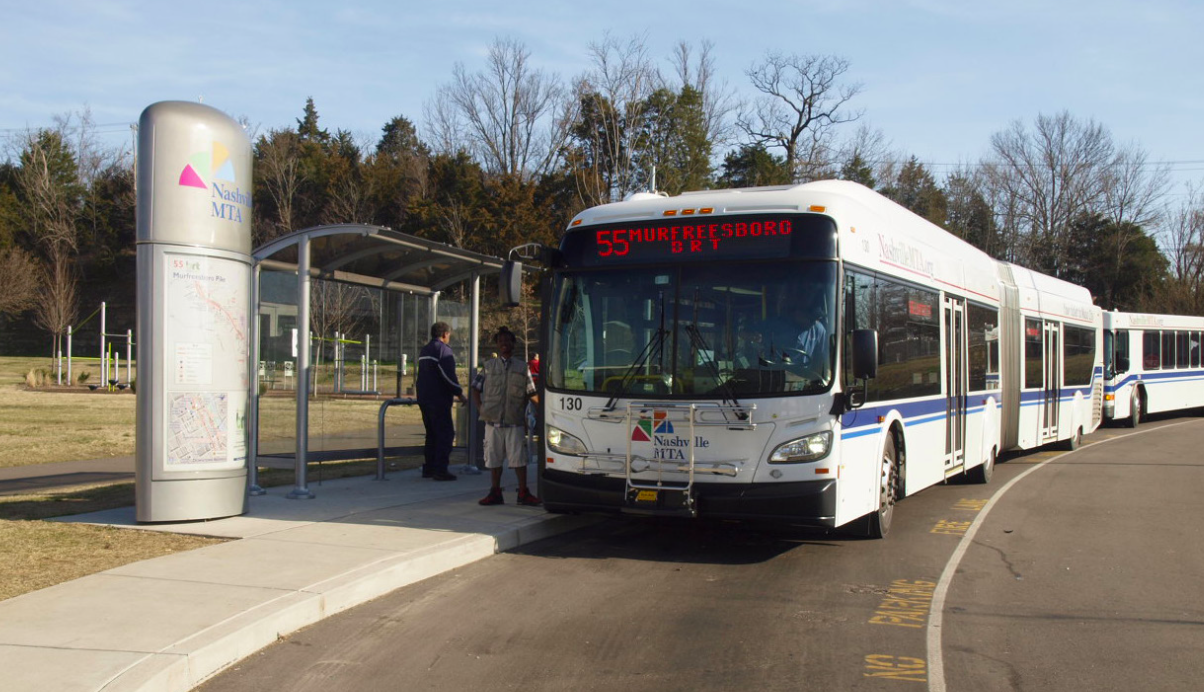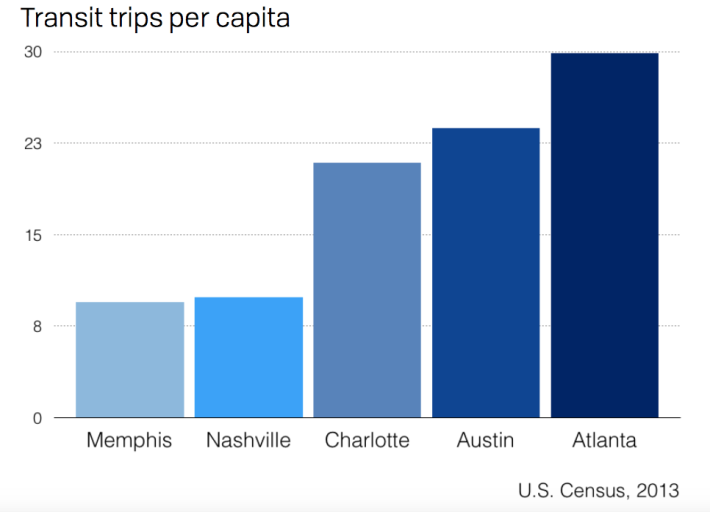Randall O'Toole has never met a transit project he didn't hate.
The Cato fellow has a knack for inserting himself into nearly every local debate over transit expansion, arguing against investments in rail and bus service. He's done it in Albuquerque. And Atlanta. And Charlotte.
It's almost impressive, except O'Toole's shtick isn't hard to pull off when local media outlets are such easy marks. He slots right into their "two sides to every story" style of coverage, no matter how shallow, formulaic, or demonstrably wrong his analysis might be.
O'Toole is currently parachuting into Nashville, which will vote on a $5.2 billion transit expansion plan in May. He has a willing partner in the influential Nashville Business Journal, which treated an O'Toole anti-light-rail screed in the Wall Street Journal as a news event, rather than another rote performance of his well-worn routine.
As Nashville gears up for the vote, the Business Journal has been trotting out O'Toole as well as the Manhattan Institute's Aaron Renn and Vanderbilt professor Malcolm Getz to round out its slate of opponents to Mayor Megan Barry's plan.
But these pundits don't represent the prevailing expertise about what makes good transit, according to Jon Orcutt, director of communications at TransitCenter. "They’re all coming from a very particular point of view," he said, which can be summarized as "outside of Manhattan there’s no place for transit."
Real watchdogs distinguish between white elephant transit projects that won't move many people and good transit investments that will address real travel needs in cities. O'Toole only has one setting: oppose the project that's on the table.
TransitCenter isn't shy about calling out bad transit projects. Orcutt, for example, has been an outspoken critic of New York City Mayor Bill de Blasio's plans for a streetcar along the Brooklyn-Queens waterfront.
But in Nashville, he thinks the city has developed a very solid plan.
"I think that they’re reading it right, that now’s the right time to change things," he said, noting that the city has very little in the way of frequent transit service. The local transit system only carries about 30,000 trips a day, well below peer cities in the Sunbelt.
"The technical dimensions" of the Nashville plan "are great too," he added.
Barry's proposal calls for five light rail lines totaling 26 miles, 25 miles of bus rapid transit, a 1.8-mile transit tunnel to bypass downtown congestion, and systemwide bus improvements.
"A lot of times you see mayors go, 'Oh, shiny! I want rail,' without realizing there's some difficult dimensions to it," said Orcutt.
Take Denver, which has built an extensive rail system that caters more to unwalkable suburbs than city neighborhoods where transit works best. Or Detroit, one of several American cities which has built short mixed-traffic streetcar segments that serve a downtown niche, and not very well. Nashville isn't taking those shortcuts.
Barry's plan has several things going for it, Orcutt says. For one, it doesn't skimp on the basics of a good bus network. The first phase focuses on adding bus service over a three-year timetable to build up transit ridership. The full plan calls for buses to arrive at least every 15 minutes on the busiest routes.
Nashville is also paying attention to how it will make streets more walkable, so people can get to their transit stop comfortably. Barry has said she will create a stand-alone department of transportation and empower it to improve walking and biking infrastructure, with a focus on safety.
And the plan avoids political compromises that have weakened rail expansions in cities like Seattle and Los Angeles, which cater to distant suburbs. The Nashville plan is squarely about improving service in the city, where the need for good transit is greatest.
"Very few places put all that together," Orcutt said.







